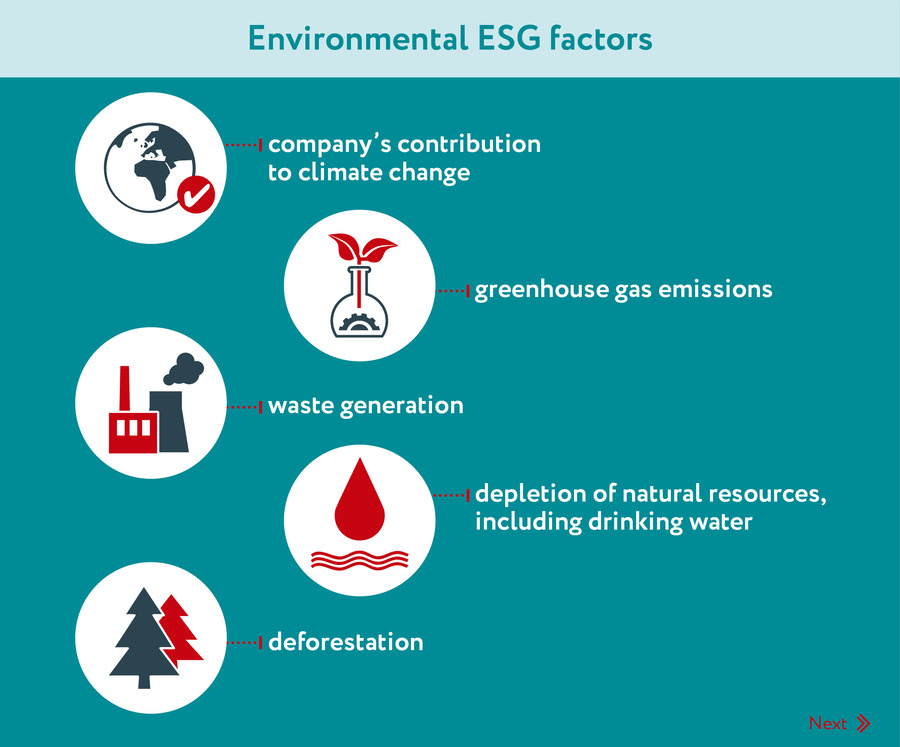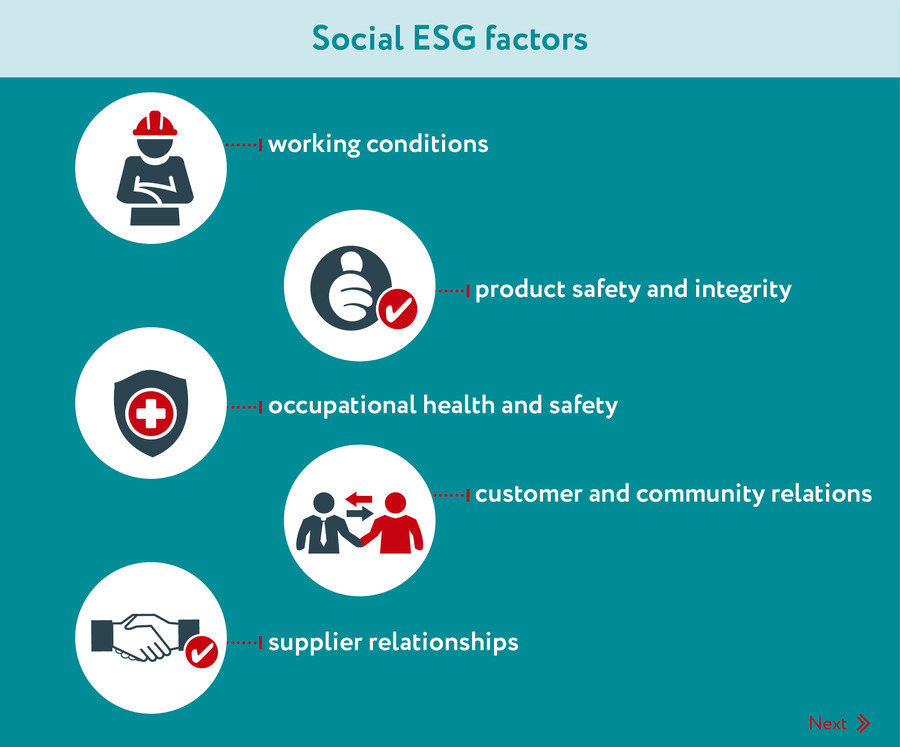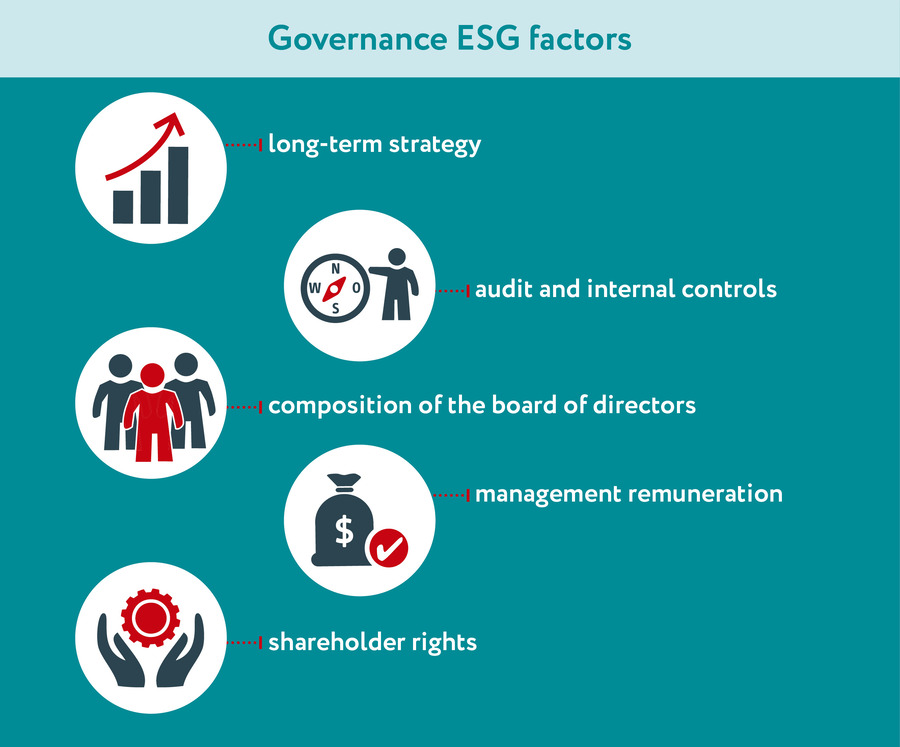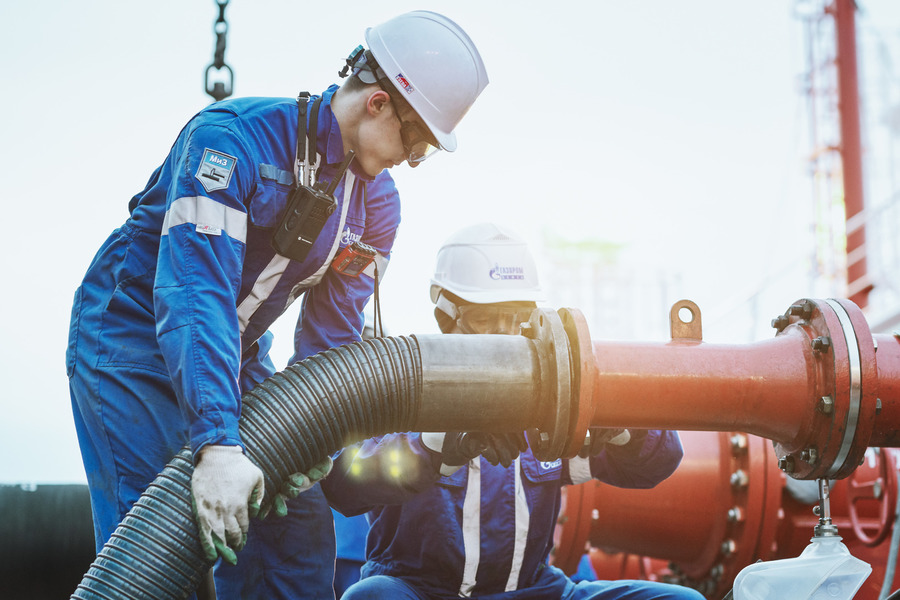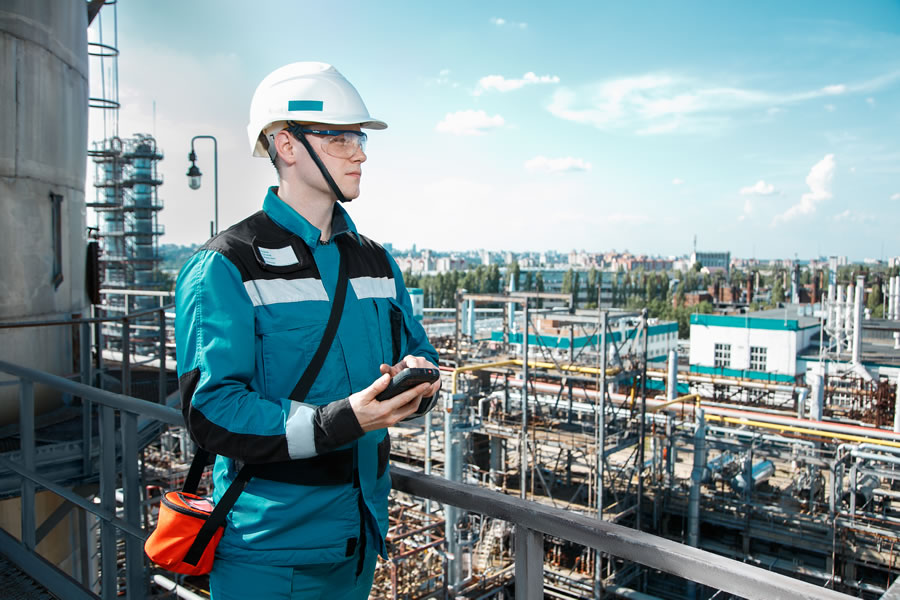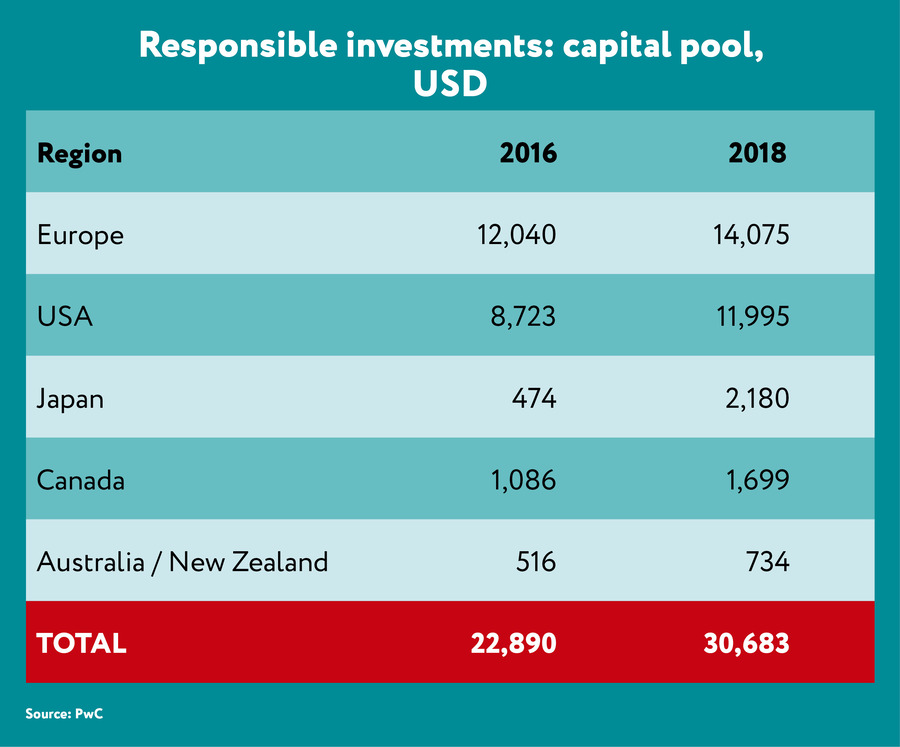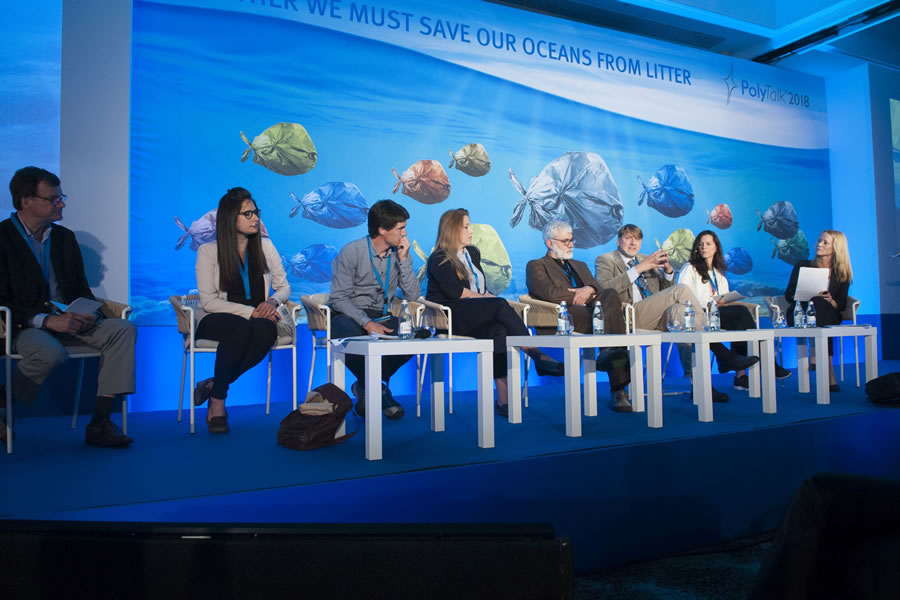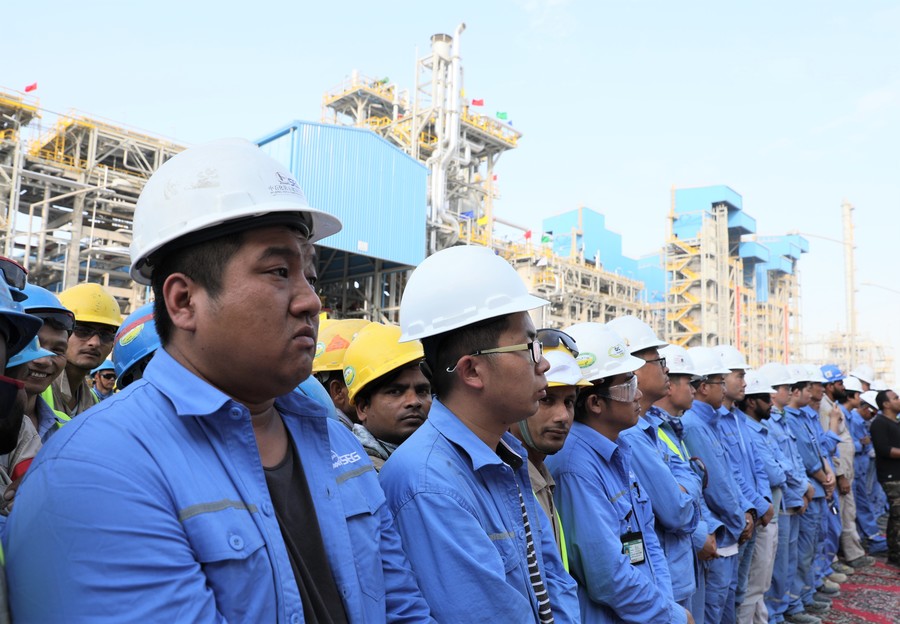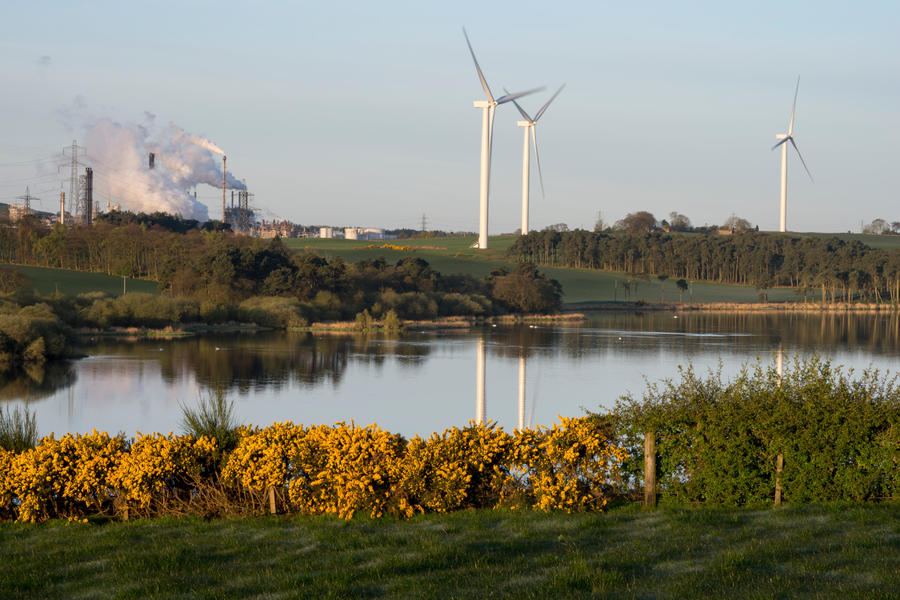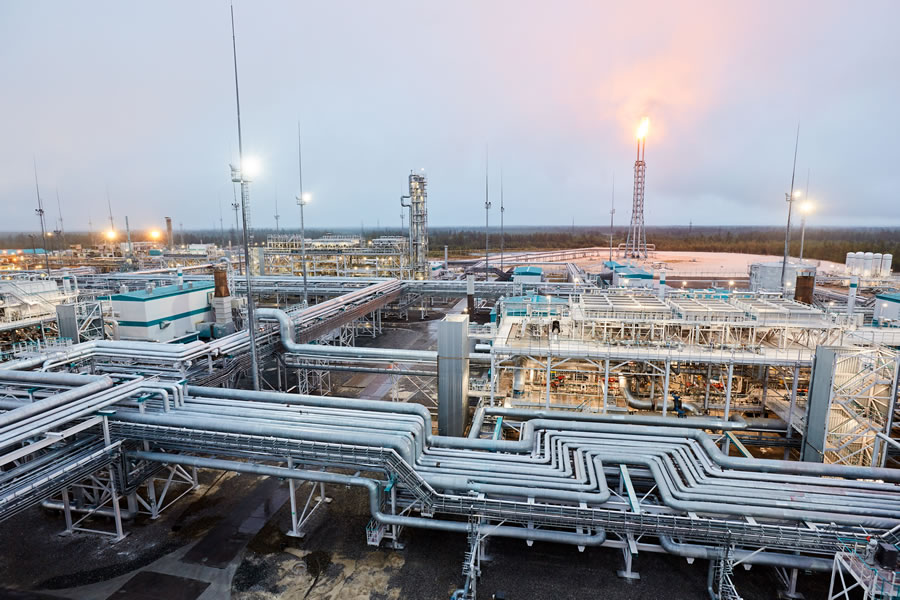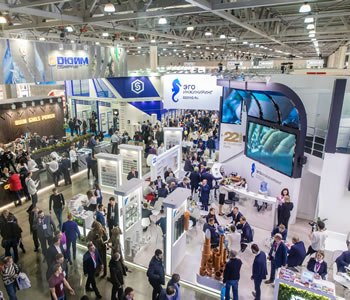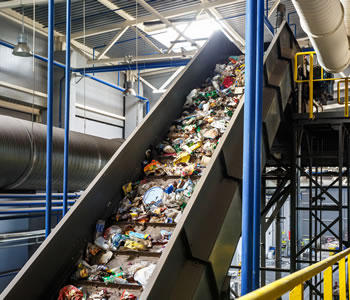Economic and social responsibility standards are gradually becoming ingrained in the fabric of the global financial market. An increasing number of companies in Russia and worldwide are seeking to comply with the environmental, social, and governance (ESG) criteria. Among petrochemical players, in particular, the ESG approach is finding a unique application. There are valuable lessons to be learnt from many international companies that have achieved remarkable success in implementing these principles. SIBUR is among the country’s most responsible corporate players that are leading the charge in integrating ESG principles into their long-term strategies.
ESG strategy: theory and practice
Environmental, Social, and Governance refers to the three central factors in investor assessments of the company's social responsibility.
Operation Clean Sweep is a PlasticsEurope international initiative that aims to prevent the loss of polymer particles during production and logistics processes.
E pillar: rational use of natural resources, reduction of negative environmental impact. This pillar concerns, among other things, greenhouse gas emissions, production and processing of industrial waste, water use and logging, and the climate change.
SIBUR participates in a number of environmental initiatives of global renown, including Responsible Care, REACH Regulation, and the European Chemical Industry Council. In 2018, SIBUR joined Operation Clean Sweep – a PlasticsEurope international initiative that aims to prevent the loss of polymer particles during production and logistics processes.
Gazprom reports replacing 400 km of pipeline per year as part of its Clean Territory project, while also guaranteeing a seven-second emergency shutdown during oil tanker loading. Rosneft is engaged in reclaiming soils across its footprint that are affected by legacy petroleum-contaminated waste accumulated by previous owners. ALROSA, in addition to honouring its environmental commitments in respect of production, has long been financially supporting the Living Diamonds of Yakutia Park.
Crude oil tanker Shturman Koshelev unloading onto the Umba floating storage and offloading vessel at Kola Bay roadstead Photo courtesy of media.gazprom-neft.ru.
Investors are increasingly shifting to a responsibility-based approach when considering potential targets for investment. As a result, companies with a transparent sustainable development programme end up attracting most of socially responsible investments.
S pillar focuses on relationships with employees, suppliers, clients and local communities. This pillar is all about creating a favourable working environment, protecting employee health, and ensuring gender diversity.
Employee safety is one of SIBUR's key strategic priorities. As part of its zero injury policy, the Company works to reduce risks and hazards to its employees and contractors.
By improving its personnel management framework, ensuring equitable remuneration and motivation growth, developing corporate practices and fostering leadership culture, SIBUR plans to boost its employee engagement to as much as 80%.
The Company is also keeping up with its global peers when it comes to gender balance, with 2025 plans aiming to at least double the number of women in the Management Board and senior management positions.
Employee safety is one of SIBUR’s key priorities.
Some 73% of investors consider a higher level of sustainability management and operational efficiency a serious enough basis for the investment decision.
G pillar embraces transparent governance with a focus on long-term growth strategy. When assessing a company in terms of its governance quality, investors look at shareholder rights, composition of the board of directors, audit and internal controls.
SIBUR is committed to maintaining excellency in compliance and plans to increase the scope of its compliance system by adopting the Code of Counterparty Business Ethics that will soon apply to all of its suppliers.
Focus on responsible investment
New sustainability standards are reshaping the global financial and investment landscape. Investors are increasingly shifting to a responsibility-based approach when considering potential targets for investment. As a result, companies with a transparent sustainable development programme end up attracting most of socially responsible investments.
The importance of sustainable investment is recognised by 67% of people born in the 1960s, while for millennials that figure is 86%.
Why do companies and investors pay so much attention to ESG factors? According to PwC surveys in 2016–2018, some 73% of investors consider a higher level of sustainability management and operational efficiency a serious enough basis for the investment decision. In 63% of cases where ESG was a factor in making the decision, the return was found to be higher. In addition, managers in 60% of the surveyed companies said that ESG disclosures contribute to a stronger investment case.
In 2017, Schroders, a British investment manager, did a global survey of 22,000 investors, 78% of whom said that sustainable investing today means a lot more to them than five years ago. Interestingly, the opinion on ESG varies by age: the importance of sustainable investment was recognised by 67% of people born in the 1960s, while for millennials that figure was 86%.
PolyTalk is PlasticsEurope's major stakeholder event. Photo courtesy of plasticseurope.org.
ESG-conscious businesses are valued higher in the long run.
According to McKinsey analysts, ESG-conscious businesses are valued higher in the long run. Their studies show that by applying ESG standards these companies are able to tap into new markets and shore up their existing positions, while also changing customer perception (people are willing to pay more for “environmental friendliness”). Over 70% of polled customers across industries that included automotive, construction, electronics and packaging said they would pay 5% of the product’s cost on top as long as the more sustainable option matches the non-green alternative in performance.
McKinsey says that the ESG approach enables companies to recruit and retain more employees, boost their motivation and increase overall productivity. There is a positive correlation between personnel satisfaction and top line growth, the experts say. The consultant’s report states that companies in the top 100 employers post 2.3–3.8% higher annual profits.
ESG can also boost the return on investment in sustainable technologies (for example, renewable energy and treatment facilities). Bigger focus on sustainability issues unlocks new investment opportunities. For example, efforts to combat air pollution will yield more than USD 3 tn worth of potential investments in China by 2030 within a number of areas – fr om air quality monitoring to indoor air purification.
Smoggy sunset over Beijing.
ESG-conscious businesses areBy applying ESG standards, companies are able to tap into new markets and shore up their existing positions, while also changing customer perception (people are willing to pay more for “environmental friendliness”).
ESG strategy in petrochemicals: international practices
Petrochemicals is one of the fastest evolving industries globally. It boasts high capital intensity and significant per-unit amounts spent on innovations, with the industry often acting as a testing ground for new technologies (including environmentally-friendly solutions) before they go on to be adopted in other sectors of the economy.
Based on the Global Reporting Initiative (GRI) standards, the most important indicators for assessing petrochemical companies’ ESG performance are as follows:
● Environmental: data on resource and energy consumption, air emissions, water use and pollution levels.
● Social: disclosures on product safety, participation in international environmental agreements and projects, occupational safety.
● Governance: availability of the Code of Business Ethics and a balanced gender composition of the management team.
In 2018, China Petroleum & Chemical Corporation (Sinopec) joined the Green Enterprise Action Plan, a national environmental initiative seeking to ensure transition to circular economy by 2023. The company runs a variety of charity programmes aimed, among other things, at eradicating poverty through job creation and investments in less privileged regions of the country. In 2018, investments in this area reached CNY 230 m (around USD 33 m).
Chinese and expat employees of Sinopec Fifth Construction Co.
The ESG approach enables companies to recruit and retain more employees, boost their motivation and increase overall productivity.
ExxonMobil places the UN’s Sustainable Development Goals that were adopted in late 2015 at the core of its activities. In its environmental pursuits, the company is guided by its Protect Tomorrow. Today philosophy. Since 2000, ExxonMobil invested nearly USD 10 bn in R&D and implementation initiatives focusing on low-emission energy solutions. Thanks to an effective energy saving programme, it has become one of the most energy efficient oil processing companies in the world. In 2018, ExxonMobil recorded 7 million CO₂-equivalent tonnes of methane emissions. The plan is to bring this figure down by 15% (vs 2016) in 2020.
Every year, ExxonMobil invests around USD 1 bn in innovative technologies, with the R&D activities focusing in no small part on creating new fuels that are more environmentally friendly and energy efficient.
ExxonMobil was a founding member of the Alliance to End Plastic Waste, an organisation committed to advancing scalable solutions to reduce plastic waste in the environment. In addition, ExxonMobil was the nation's first energy company to join the Recycling Partnership, a national non-profit that promotes recycling in the US.
ExxonMobil leverages its global footprint to improve local economy. For example, the company hires managers and other employees fr om local communities. In Angola, 91% of the company’s staff are local residents, with 77% holding senior or management positions. In Indonesia, these numbers are 97% and 93%, respectively, in Malasia – 98% and 90%.
ExxonMobil Chemical’s ethylene plant and Airvolution Energy’s wind turbines, Scotland.
Companies in the top 100 employers post 2.3–3.8% higher annual profits.
In line with the goals of the Paris Agreement, in 2017, Shell launched a long-term programme to reduce carbon emissions for all the products the company sells. By 2035 and 2050, it aims to reduce its carbon footprint vs 2016 by 20% and 50%, respectively.
Shell’s Safety, Environment and Sustainability Committee plays a special role in the management of the company. It makes sure that the information on the developed sustainability policies and practices reaches the heads of the company’s offices around the globe.
ESG in Russia
In Russia, ESG is yet to gain momentum, but an increasing number of funds are factoring sustainability criteria into their investment decisions.
“Getting an early start in this area is going to make us better prepared for the point in the future where this approach inevitably becomes mandatory for all,” says Vyacheslav Solomin, COO of En+.
The first ones to make a foray into ESG strategies were metallurgical and mining companies. Precious metals miners Polymetal and Polyus, steel and mining player Severstal, aluminium company RUSAL and its parent En+ all include ESG sections in their annual reports. Most of them are big international companies with large private shareholders who are keen on sustainable investing and transparent ESG reporting.
A child feeding a wisent in the Living Diamonds of Yakutia Park, which is actively supported by ALROSA.
Bigger focus on sustainability issues unlocks new investment opportunities.
SIBUR is no exception. According to Maxim Remchukov, Sustainable Development Director at SIBUR, fast-growing global producers of consumer goods are strongly urging their suppliers to join the sustainable development movement. In their turn, clients from both Russia and abroad are also starting to wonder about wh ere Russian companies stand on the environmental, social and corporate matters.
The improvement of ESG metrics and commitment to circular economy have tangible economic and social benefits that transcend the industry and deliver a multiplier effect on other sectors. As a result, Russian companies can share their know-how and technologies while also doing their part to solve global environmental challenges.
On their ESG journey, companies often have to resort to state support. At the start of 2020, the Russian government approved a National Action Plan for the First Stage of Adaptation to Climate Change for the Period up to 2022. The document sets out economic and social measures that will not only mitigate risks, but also leverage opportunities that emerge amid climate change. “Many see climate change as an opportunity rather than a threat,” says Vyacheslav Solomin. “A new generation of entrepreneurs are bringing new values to the industry. It is of no help to be defensive at this point, now it is all about adapting to the status quo.”
Another key element is a clear and transparent awareness raising campaign, preferably carried out at the national level to target a wide range of stakeholders.
Metallurgical and mining companies were ESG pioneers. Photo: alloy production at the Kubaka processing plant Source: polymetalinternational.com.
In Russia, ESG is yet to gain momentum, but an increasing number of funds are factoring sustainability criteria into their investment decisions.
In Russia, Expert RA (RAEX) is the only agency today releasing a rating looking at these matters, with many major companies seeking to make it to this ranking. In 2018, RAEX published a list of market leaders enjoying the greatest success with their environmental, social and governance initiatives. The environmental section used the following metrics calculated per unit of volumes sold: water usage, waste generation, total air pollutant emissions. Social factors included social expenses and investments in human capital per one employee, and the number of accidents per 1,000 employees. The agency also considered potential mitigants of governance risks, such as the share of independent directors; percentage of shares in free float; and position in Transparency International’s Transparency in Corporate Reporting list.
The top-rated companies were LUKOIL, Magnitogorsk Iron and Steel Works, Gazprom, TATNEFT Group, and ALROSA, with SIBUR coming in 14th. The list shows that the ESG universe in Russia is dominated by oil, oil and gas, and petrochemical companies, as well as companies operating in the ferrous and non-ferrous metals market.
Interestingly enough, the ESG performance of the rating’s leaders was more than two times as good as that of their European peers, with the first three companies of the Top 20 (Mining and Metallurgical Company Norilsk Nickel and two timber and paper & pulp companies – Ilim Group and Arkhangelsk Pulp & Paper Mill) spending an average of 3.8% of their revenue on environmental programmes vs the EU’s 1.5%.
Norilsk Nickel implements not just environmental, but also various social programmes, including those that promote healthy lifestyle among employees. Photo courtesy of vk.com/nornickel_official.
Fast-growing global producers of consumer goods are strongly urging their suppliers to join the sustainable development movement.
On the whole though, the situation in the country leaves a lot of room for improvement. Russia’s annual environmental spending is around 0.8% of the GDP. In the following years, this spending is expected to increase at least twofold across all budget levels to match the corresponding expenses of oil, metals and paper & pulp companies that dominate the Top 20 of the rating. This increase is envisaged by the Environment National Project (approved by the President’s decree in May 2018) that sets aside RUB 1,551 bn for this purpose.
Russian companies that want to boost their ESG ratings mainly focus on the environmental aspect. While the social pillar draws heavily on the legacy from the Soviet Union wh ere plants formed the infrastructural backbone of local economies, the environmental issues are less readily addressed.
“Russian people are used to the idea of limitless natural resources, which is reinforced by the enormity of the country and its relatively low population. There is a certain degree of carelessness that comes along with it,” says Victor Drozdov, Director for Business Communications and Investor Relations at Polyus.
The old ways are, however, no longer sustainable, and executives, especially in the petrochemical industry, are faced with a formidable task of changing them. According to Dmitry Konov, Chairman of the Management Board at SIBUR Holding, SIBUR fulfils the environmental criterion on at least three counts: the use of associated petroleum gas (APG) as feedstock to avoid flaring, safe production with minimal environmental footprint, and positive environmental impact of SIBUR's products throughout their life cycle. However, the circular cycle has a big gap, which is the insufficient and inadequate collection of recyclables. This places additional responsibility on all industry players pushing them to seek ways to nudge the supply chain participants towards the circular economy.
APG processing at the Vyngapurovsky Gas Processing Plant.
At the start of 2020, the Russian government approved a National Action Plan for the First Stage of Adaptation to Climate Change for the Period up to 2022.
“As the industry, we must be technologically prepared to process the collected polymer waste and bring it back into our production cycle. It is now one of our key priorities,” said Dmitry Konov.
Yet this is just the tip of the iceberg when it comes to the Company’s ESG efforts.
SIBUR’s ESG strategy
In December 2019, SIBUR’s Board of Directors approved the 2025 Sustainable Development Strategy. It identifies five key focus areas: Responsible Business, Environment, Society and Partnership, Sustainable Product Portfolio, and Climate Impact Mitigation.
SIBUR’s main environmental goals include mitigating adverse impact on nature by using best available practices and technologies. There are a number of concrete tasks that form part of this general undertaking and include cutting specific water consumption and specific emissions by at least 5% and reducing the specific mass of contaminants in waste water by 40% vs 2018. Another important objective is recycling at least 50% of all generated waste.
The Company also focuses on curbing its climate impact. To that end, it promotes energy efficiency, while also developing and implementing low-carbon technologies. SIBUR plans to increase the share of renewables in its energy mix fivefold vs 2019.
Voronezhsintezkauchuk, a mobile environmental lab at SIBUR’s Voronezh site.
The ESG performance of the RAEX rating’s leaders was more than two times as good as that of their European peers, with the first three companies of the Top 20 spending an average of 3.8% of their revenue on environmental programmes vs the EU’s 1.5%.
For years, SIBUR has adhered to the Best Available Techniques (BAT) concept that aims to protect the environment and human health. The Company spares no effort in reducing pollution from its production activities, having already cut air emissions by 1,000 t vs 2017.
By 2025, SIBUR targets a 50% increase in investment in R&D projects aimed at polymer waste recycling and use of renewable feedstock. The Company plans to partner with other market players to run joint projects aimed at promoting circular economy.
The Company’s No. 1 priority in the social domain is ensuring safe working conditions for all employees and contractors, achieving a yearly 5% decrease in the lost-time injury frequency and paving the way for a zero fatality culture.
Since 1 February 2016, SIBUR has been running the ambitious and far-reaching Formula for Good Deeds programme. It covers 16 key cities in the Company's regions of operation and has six focus areas: urban development, education and science, sports and healthy lifestyle, environmental protection, culture, and volunteering.
SIBUR’s Nature Path allows experts from SIBUR and Tobolsk Integrated Research Station of RAS (Urals) to check the quality of the environment.
The insufficient and inadequate collection of recyclables places additional responsibility on all petrochemical industry players.
“We are building a world-class company, so we are guided not only by profit margins, but also by high sustainability and corporate social responsibility standards. The Formula for Good Deeds allows us to engage in a dialogue with a wide range of stakeholders,” says Dmitry Konov, Chairman of the Management Board at SIBUR Holding.
In the near future, SIBUR plans to establish a public council under the programme and launch at least three long-term biodiversity conservation projects. In addition, the programme will include a new social entrepreneurship component. The share of SIBUR’s employees participating in volunteering and other social responsibility projects will increase to 20%.
ESG investing is here to stay. Companies that do business responsibly generally have a long-term development strategy, which makes them a safe investment and reliable partners. There is little doubt that an effective ESG strategy will soon become one of the key factors for investors when choosing their allocation targets.
Download PDF

